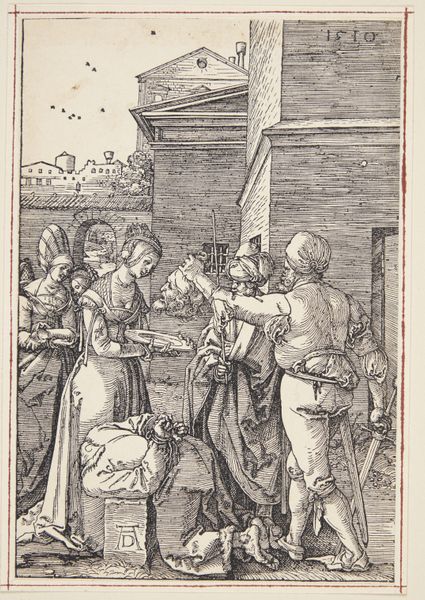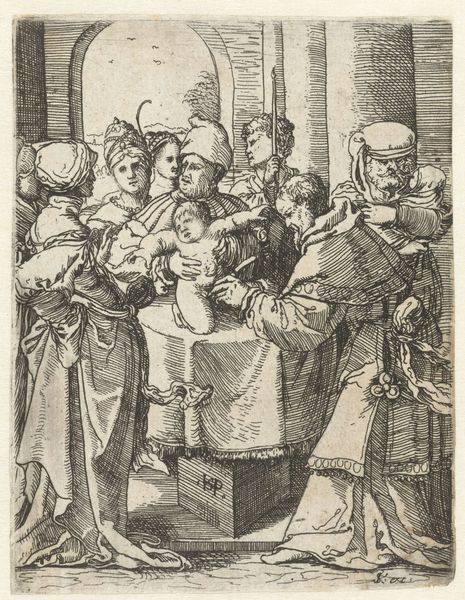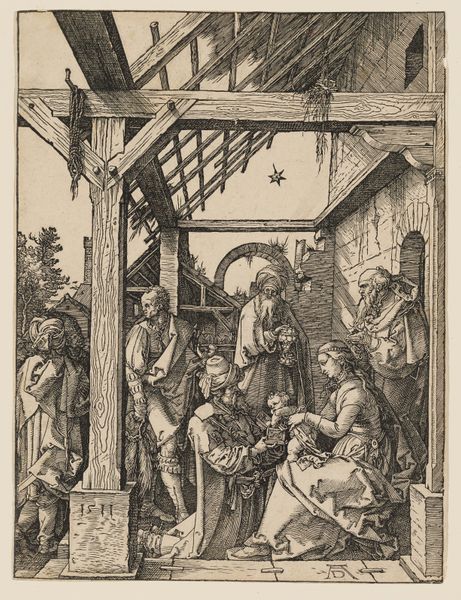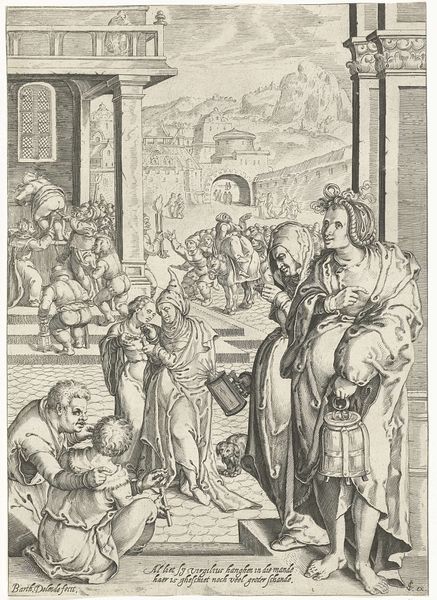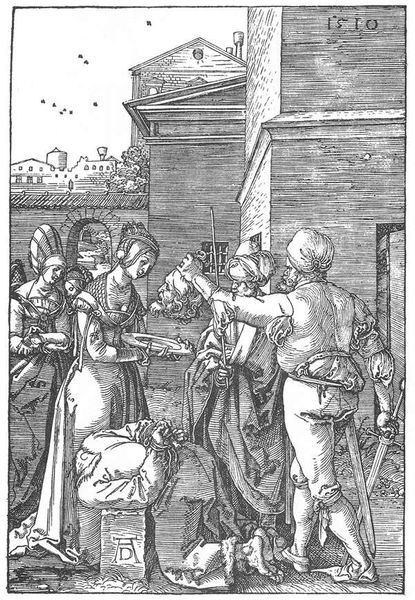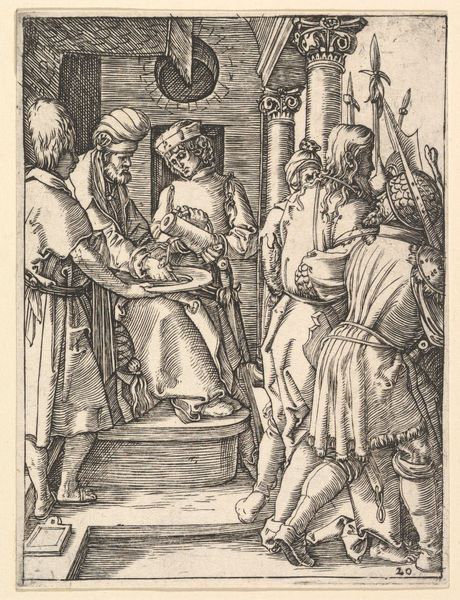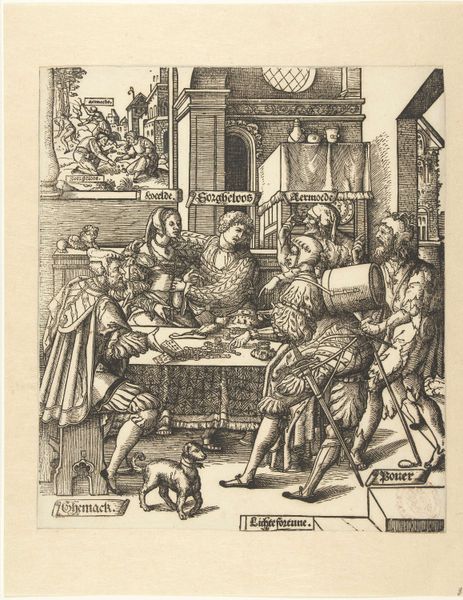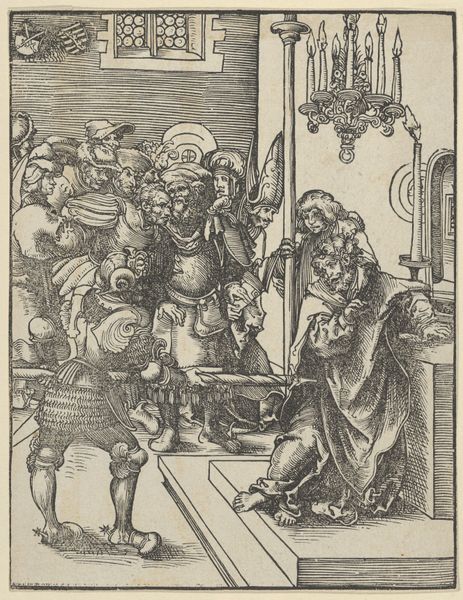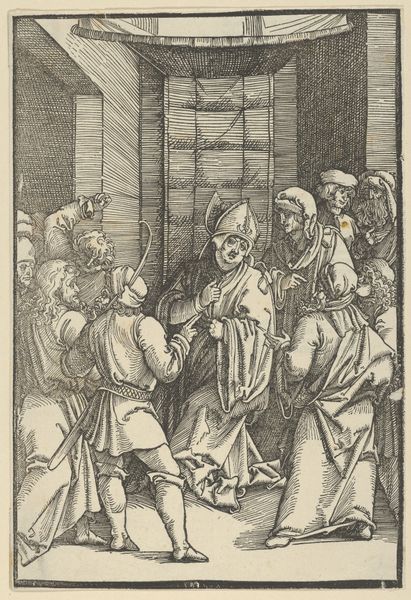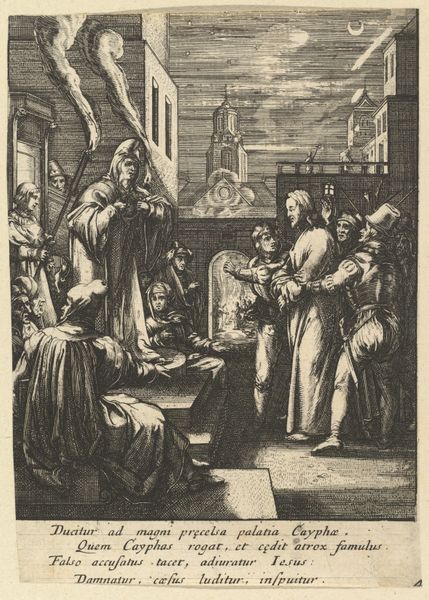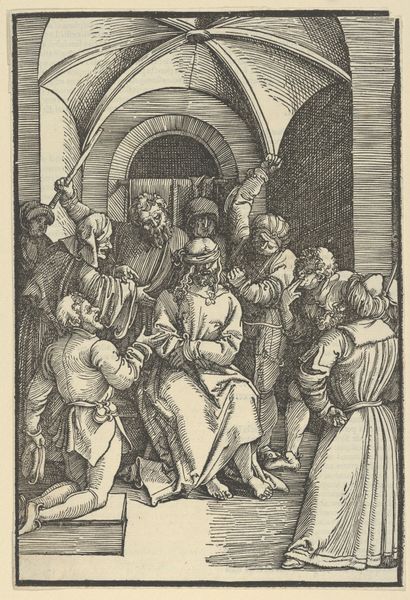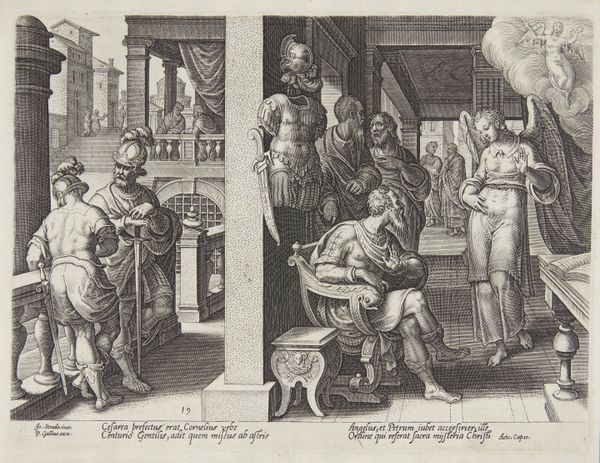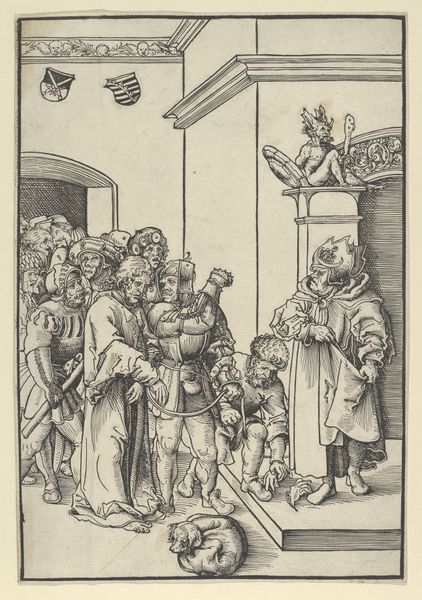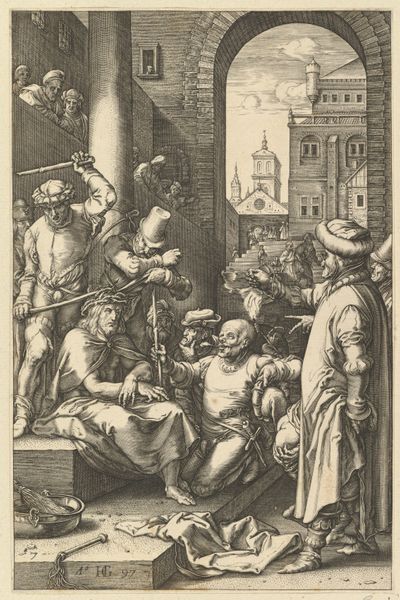
print, woodcut
# print
#
figuration
#
woodcut
#
history-painting
#
northern-renaissance
Dimensions: 195 mm (height) x 132 mm (width) (bladmaal)
Albrecht Dürer made this print of “The Beheading of St. John the Baptist” around 1510, using the process of woodcut. Here, a design is drawn onto a block of wood, and then the non-image areas are carved away. The remaining raised lines take the ink, which is then transferred to paper. The stark contrast of black lines on white paper, defines the composition. Notice how the density of the lines create shading and texture. The image's power lies in its precise carving, which creates a sense of drama. Woodcut was a key technology in the development of printmaking, allowing for the wide distribution of images, and ideas. Dürer’s mastery elevated this craft, traditionally seen as a commercial endeavor, into the realm of fine art. The work involved in creating a woodcut is considerable. The artist would have needed skill as a draughtsman, and as a carver. Dürer demonstrates the expressive potential of printmaking, and also challenges our assumptions about the divide between art and craft.
Comments
No comments
Be the first to comment and join the conversation on the ultimate creative platform.
